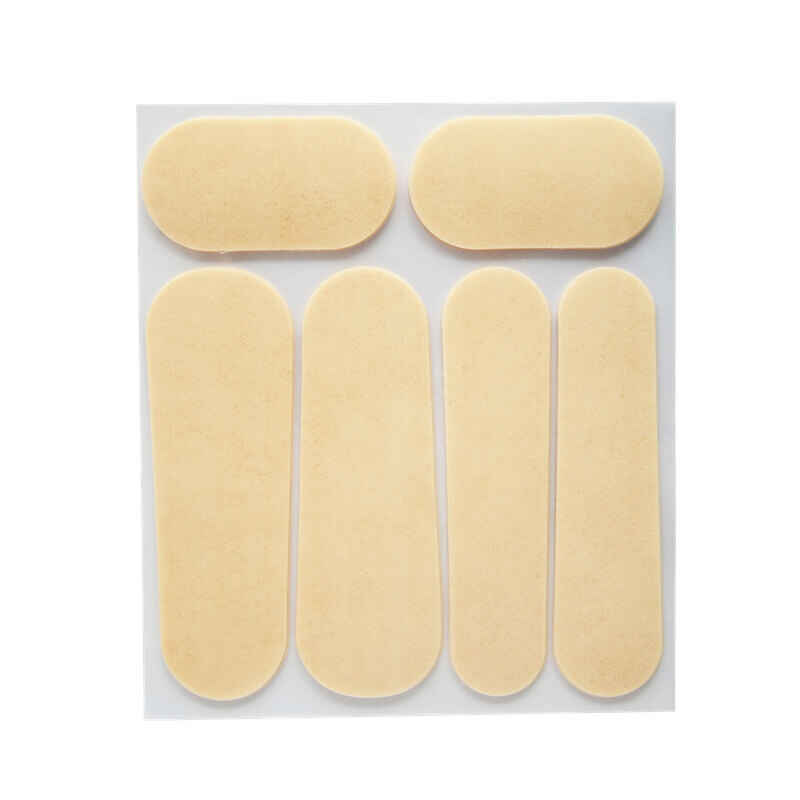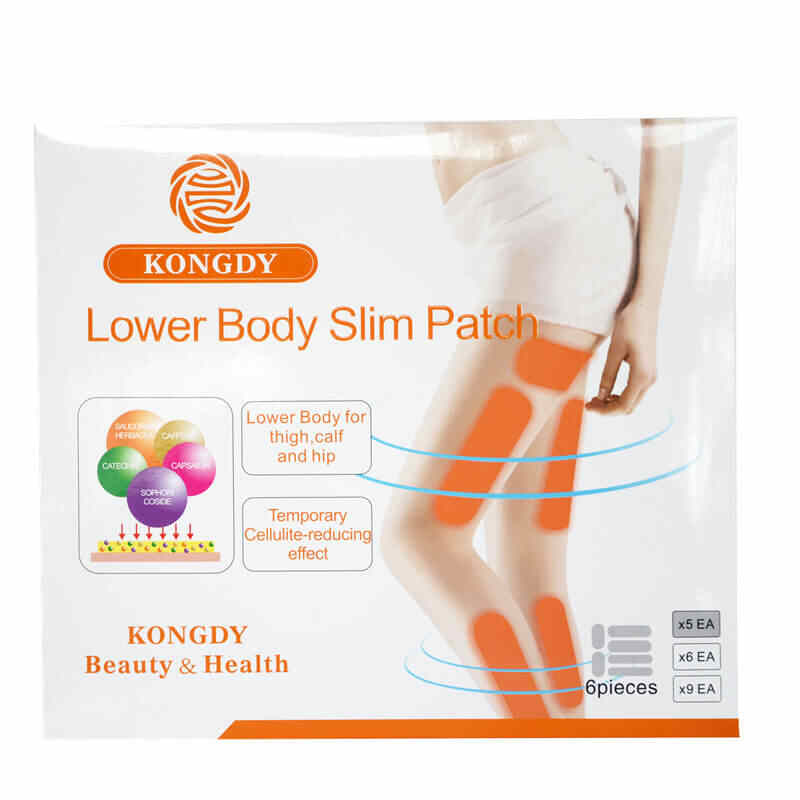Are Private Label Weight Loss Patches Less Risky Than Custom Patches?
In the expanding health and wellness industry, weight loss patches have emerged as a popular solution for consumers seeking convenient and non-invasive weight management options. With this demand, businesses have two main pathways when entering the market: Private Label weight loss patches or Custom weight loss patches. Both options come with unique benefits, but one key question arises—are Private Label patches less risky than Custom patches?
To answer this, we must explore the role of weight loss patches Manufacturer, weight loss patches OEM services, and the influence of weight loss patches Suppliers in ensuring safety, compliance, and effectiveness.

Understanding Private Label vs. Custom Weight Loss Patches
What Are Private Label Weight Loss Patches?
Private Label patches are pre-formulated products created by a weight loss patches Manufacturer that businesses can rebrand with their own logo, packaging, and marketing strategy. The formula is already tested, validated, and approved for production, making it a faster route to market.
Key Benefits of Private Label Weight Loss Patches:
Shorter time to launch
Lower upfront R&D costs
Established formulations with proven results
Easier quality control and compliance management
What Are Custom Weight Loss Patches?
Custom weight loss patches are tailor-made products where businesses collaborate with a weight loss patches OEM partner to create unique formulations, delivery methods, or even eco-friendly materials that differentiate the product in the market.
Key Benefits of Custom Weight Loss Patches:
Unique branding opportunities
Customized ingredients to meet consumer demands
Potential for premium pricing
Stronger product differentiation
However, customization requires more testing, higher costs, and greater responsibility in quality control, which inherently introduces more risks compared to Private Label options.
Why Private Label Weight Loss Patches Are Considered Less Risky
Established Formulations
Private Label weight loss patches rely on proven formulas already tested by the weight loss patches Manufacturer. The safety and effectiveness have been validated, which minimizes the chance of formulation-related risks.Streamlined Quality Control
Since the formulation is standardized, the QC process is consistent and efficient. The manufacturer has already developed protocols for adhesion testing, stability testing, and microbial safety.Lower Regulatory Burden
Regulatory approval for Private Label weight loss patches is generally easier since the formula is already compliant with FDA, EU, or regional health authority guidelines.Reduced Financial Investment
Brands entering the market with Private Label products don’t need to spend heavily on research, development, and ingredient sourcing, reducing financial risks.Predictable Supply Chain
Working with a weight loss patches Supplier is simpler in Private Label projects, as raw materials are pre-approved and consistently sourced.
The Risks Associated with Custom Weight Loss Patches
While Custom weight loss patches offer more branding opportunities, they come with higher risk factors:
Formulation Complexity
Introducing unique herbal blends or bioactive compounds increases the chance of inconsistent results, allergic reactions, or poor patch adhesion.Regulatory Challenges
Custom formulations require additional documentation, safety studies, and regulatory approvals, which can be time-consuming and costly.Quality Control Strain
Each new formula demands rigorous QC testing—from raw material analysis to patch stability—making the process more complex.Higher Costs and Longer Timelines
Custom development requires investment in R&D, clinical testing, and specialized sourcing from weight loss patches Suppliers, which can delay product launches.Market Risk
Since the formula is new, market acceptance is uncertain. Unlike Private Label products, there is no pre-existing consumer feedback to rely on.
How Manufacturers and OEMs Minimize Risk
A strong weight loss patches Manufacturer or weight loss patches OEM partner plays a pivotal role in mitigating these risks. By offering expertise in formulation science, advanced testing facilities, and regulatory compliance, they provide reassurance to both Private Label and Custom patch clients.
Risk Management Strategies by OEM Manufacturers:
Standardized Testing Protocols: Ensuring every patch—whether Private Label or Custom—passes adhesion, release, and microbial safety tests.
Regulatory Guidance: Assisting brands in navigating international compliance standards.
Flexible Production: Scaling from Private Label weight loss patches to Custom weight loss patches with consistent quality assurance.
Supplier Verification: Partnering with trusted weight loss patches Suppliers to reduce raw material risks.
Private Label vs. Custom: Which Should Businesses Choose?
The choice between Private Label and Custom weight loss patches depends on business goals, budget, and risk tolerance.
Private Label Weight Loss Patches: Best for startups or businesses looking to enter the market quickly with minimal risk and investment.
Custom Weight Loss Patches: Ideal for established brands aiming to differentiate themselves and willing to invest in long-term innovation despite higher risk.
Many companies start with Private Label weight loss patches to test market response, then transition to Custom solutions once their brand gains traction.
Role of Suppliers in Risk Management
A weight loss patches Supplier is essential in controlling risks at the raw material level. High-quality suppliers ensure consistent ingredient potency, safety, and certification. Reliable suppliers reduce the chances of contamination, allergen issues, or formulation inconsistencies—especially in Custom weight loss patches.
Best Practices to Reduce Risks
Partner with a GMP-Certified Manufacturer
This ensures all products—Private Label or Custom—meet strict production standards.Vet Suppliers Carefully
Choose weight loss patches Suppliers that provide Certificates of Analysis (COA) and adhere to sustainable, ethical sourcing.Conduct Pilot Testing
Before launching a Custom formula, run small-batch testing to evaluate market response and quality consistency.Invest in Documentation
Maintain detailed QC, formulation, and compliance records to streamline audits and regulatory reviews.Start with Private Label, Then Expand
Many brands minimize risk by beginning with Private Label patches and later moving to Custom options once established.
Conclusion
So, are Private Label weight loss patches less risky than Custom patches? The answer is yes. Private Label products carry fewer risks because they rely on proven formulations, established QC processes, and predictable supply chains. However, while Custom weight loss patches involve greater risks, they also provide unmatched opportunities for innovation and differentiation.
The key lies in choosing the right weight loss patches Manufacturer, weight loss patches OEM partner, and weight loss patches Supplier. With the right support system, brands can balance risk with innovation—starting safely with Private Label solutions and evolving into Custom patches to achieve long-term market leadership.
Related Questions and Answers
Q1: Can a business start with Private Label weight loss patches and move to Custom later?
A1: Yes, this is a common strategy. Starting with Private Label minimizes risk, while Custom patches allow for future differentiation.
Q2: Are Custom weight loss patches always riskier?
A2: They involve more risks due to complex QC and regulatory requirements, but these risks can be managed with the right Manufacturer and Supplier.
Q3: How does a weight loss patches OEM reduce risks?
A3: OEMs provide expert testing, compliance support, and scalable production solutions to ensure safety and consistency.
Q4: What role do Suppliers play in quality control?
A4: Reliable Suppliers ensure ingredient safety, potency, and traceability—critical in both Private Label and Custom products.
Q5: Do Private Label patches cost less than Custom patches?
A5: Yes, Private Label patches are generally more affordable since they avoid R&D and extensive testing expenses.






